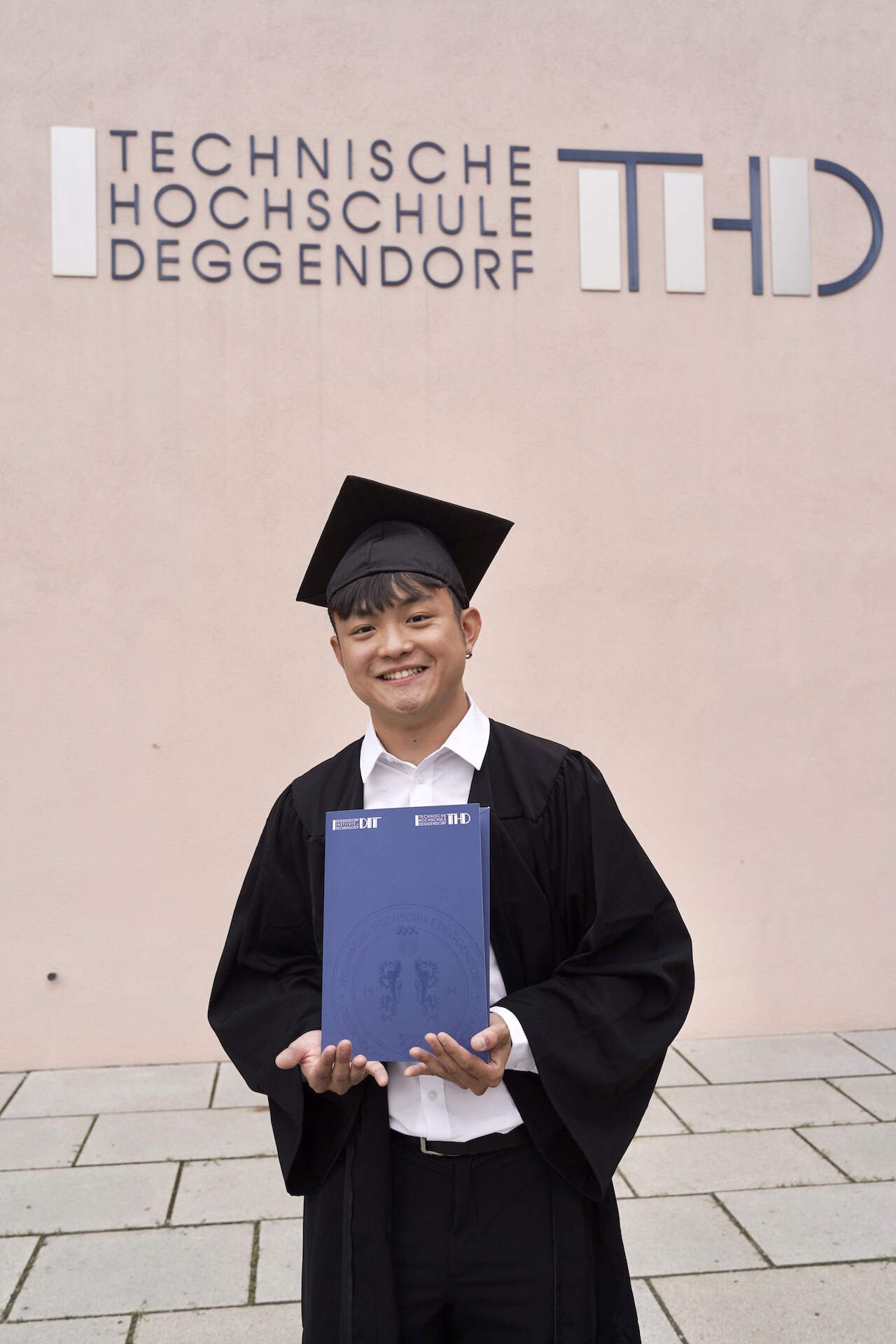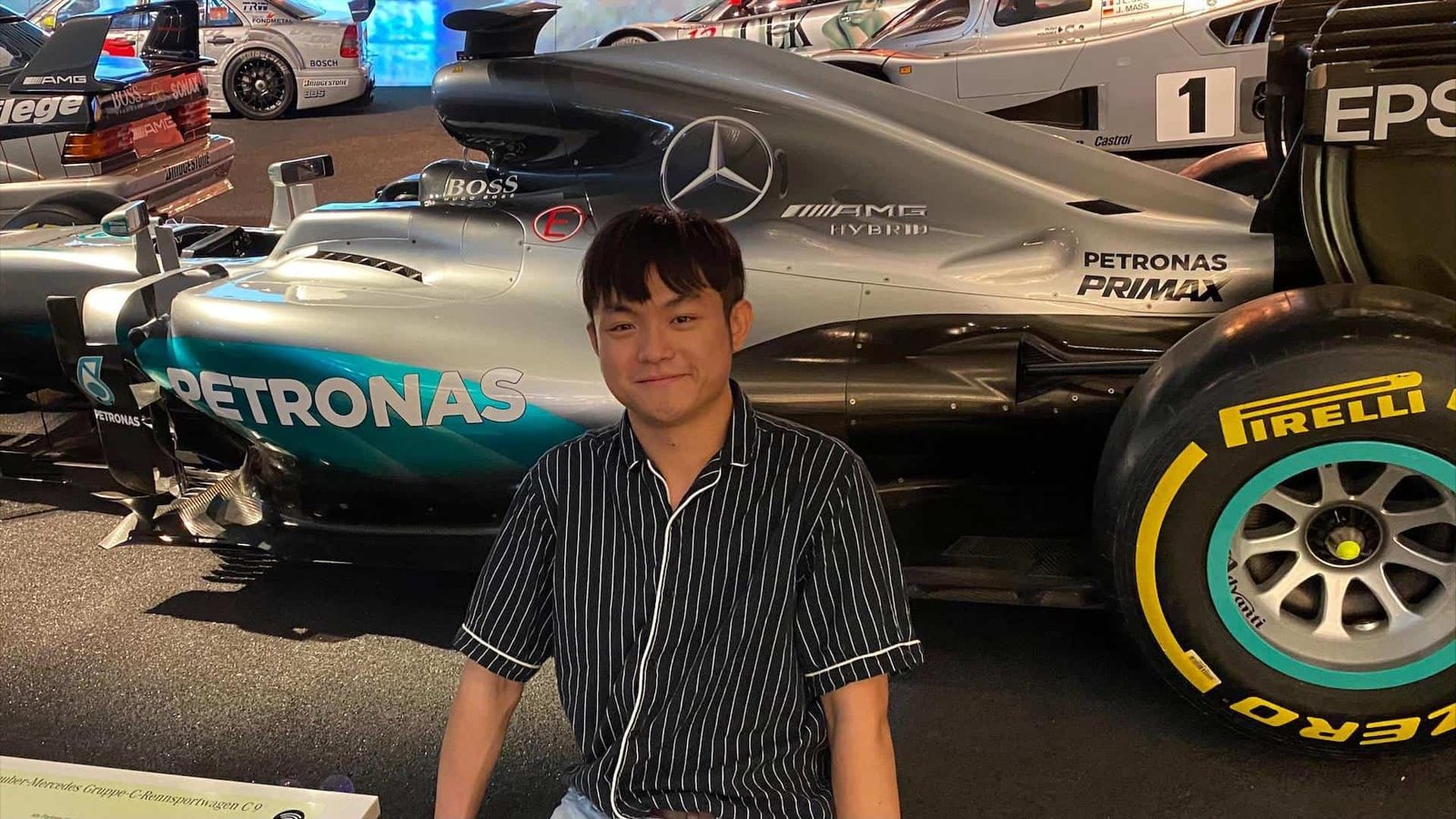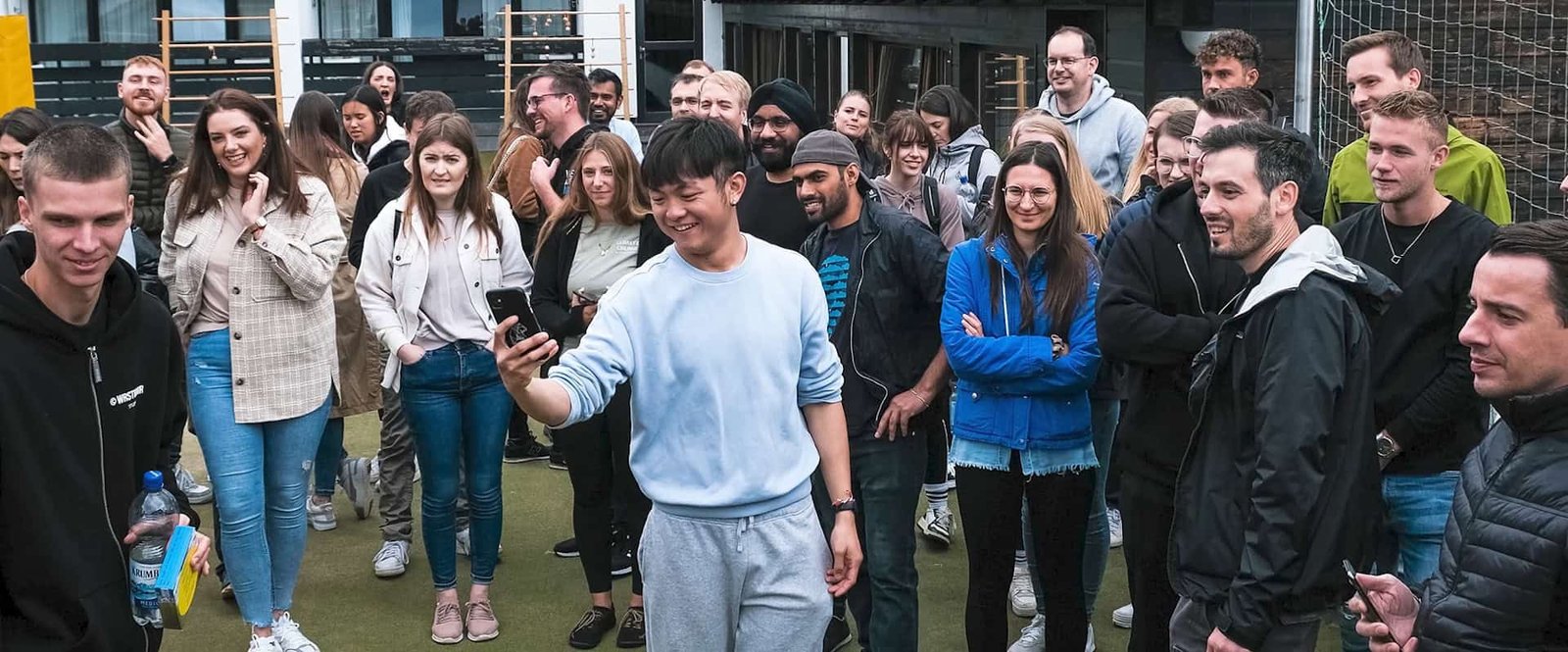From Deggendorf to Munich: My Journey Studying in Germany
Estimated reading time: 5 minutes
Updated on: Sept 2025


Hi everyone, I’m Jimmy. I’m currently doing my Master’s in Computer Science (M.Sc Informatik) at Ludwig Maximilian University of Munich (LMU). I’ve only been here for about half a year, so maybe I’ll save the full LMU story for another time!
Before this, I completed a 3.5-year Bachelor’s degree in Artificial Intelligence at DIT (Deggendorf Institute of Technology). For those of you learning German at German Educare, I’m sure this name is familiar to you.
The university is in a small town called Deggendorf which many people questioned why I chose to study there. Honestly, I didn’t have many options at the time. I was too playful earlier on and didn’t take my German studies seriously. Plus, due to the pandemic, we couldn’t travel to Germany to study German in person. Because of that, the TestDaF became the only chance we had to reach the C1 level, and we only had one shot. As you can probably guess, I failed, just one point short (4 + 4 + 4 + 3), narrowly missing C1. DIT was one of the few universities I could still apply to.
When I first arrived in Deggendorf, I couldn’t help but feel a bit disappointed. What I saw was very different from what I had imagined Germany to be like. It didn’t even have an Asian supermarket. But I had no way out at that point. I told myself that since I had chosen this path, I had to see it through. So I quietly persevered.
Academically, DIT isn’t extremely difficult, but I struggled in the beginning because I wasn’t used to the German teaching style. So I wouldn’t say my first semester went very smoothly. I’d advise everyone not to see DIT as an easy or relaxed university. Whether it’s easy or difficult depends on the person and the programme, either way you need to give it your all.
In terms of teaching, I found most professors to be quite caring toward students. Compared to large universities, DIT professors are closer and more accessible. So when you encounter problems, they’re usually willing to help. My Bachelor’s programme was taught in German, and at times it was tough for me to ask complex questions in German. Luckily, the professors didn’t mind me asking in English, and they made a great effort to explain things to me in English.
Because of the pandemic, my first three semesters were held online. Later on, the professors gradually transitioned back to in-person classes. As for exams, all of mine were conducted in person even during the peak of the pandemic. So don’t expect to be able to cheat from the comfort of your home!
I chose to study Artificial Intelligence purely out of interest. At the time, AI wasn’t very popular yet, so not many universities in Germany offered it. DIT was one of the few that did, which was a major advantage for me. That was years ago, and with today’s AI boom, more universities have probably added AI programmes but I’m not entirely sure, so please do your own research.
Studying abroad, aside from the language, the biggest challenge for me was being so far from home. Due to the pandemic in the early years and later the heavy academic load (along with internships and thesis work), I could only go home roughly once every two years. Every time I returned, it felt like so much had changed. Studying abroad taught me to really cherish the people and things around me and to accept change and impermanence. Other than trying to go home more often and graduate as soon as possible, I don’t really have a better solution to this challenge. Of course, many people love living abroad, so whether it’s a blessing or a curse is something you’ll have to experience for yourself.

Studying overseas has also brought me opportunities I never even imagined. In my fifth semester, I was lucky to get an internship at a Mercedes-Benz subsidiary. During the internship, I was given lots of freedom and space to grow. I personally built an AI system from scratch in six months, which was very fulfilling. Because my supervisor appreciated my work, I was given a chance to continue working part-time during my sixth semester and to write my thesis with them in my seventh semester. In those two years, I learned a lot, made many friends, and had experiences I never thought I’d have.

I’d like to say that getting into a big company isn’t just about ability, luck plays a big part too. But I still believe: the harder you work, the luckier you get!
I personally felt that my undergraduate studies didn’t provide a strong enough theoretical foundation, which is why I chose to pursue a Master’s at LMU. You might ask why I didn’t stay at THD. I decided to transfer because THD focuses more on practical application. The advantage is that it prepares you well for entering the job market and industry. The downside is that without solid theoretical grounding, it’s hard to keep up when technology rapidly changes and practical methods can quickly become outdated. That’s why I think theoretical knowledge is essential for adapting. But of course, this varies from person to person.
Studying in Germany isn’t easy. You need to be mentally prepared before coming here. If you’re just here to have fun, think twice unless you’re okay with graduating late. Though it’s tough, I believe that with enough perseverance and resilience, any problem can be overcome.
My time in Germany has been when I’ve grown the most. So, don’t be like me! Don’t slack off. Learn your German well, or you’ll really be at a disadvantage!
Let’s encourage one another!
Written by Jimmy
Jimmy is now doing his Master’s in Computer Science at LMU Munich after completing his Bachelor’s in AI at DIT, Deggendorf. His journey wasn’t easy. He struggled with the language and German teaching style, but pushed through and even landed an internship at a Mercedes-Benz subsidiary, where he built an AI system from scratch and later continued part-time. While DIT gave him valuable practical experience, he chose LMU to strengthen his theoretical foundation. His advice? Take German seriously, be prepared for challenges, and remember that with perseverance (and a little luck), you can go far.
